Intelligent vehicles shall be equipped with network security as standard.
During the two sessions in 2021, Zhou, member of the CPPCC National Committee and founder of 360 group, announced his three suggestions. Among them, in the automotive field, Zhou believes that network security problems such as remote control, data theft and information deception have appeared in China Intelligent vehicle It may endanger personal safety and public safety and cause irreparable heavy losses. Therefore, Zhou suggested that Intelligent vehicle The network security protection system has been incorporated into the vehicle production, sales and service system, and gradually formed mandatory requirements. Like the automobile safety belt, it is listed as the standard of automobile safety.

In addition, the automobile industry should increase investment in network security, take the safety brain as the core, build network security infrastructure such as intelligent networked automobile safety big data platform, safety intelligent analysis platform and emergency response platform, and build an intelligent networked automobile safety capability system. The following is Zhou Hongyi's report on strengthening Intelligent vehicle Original text of network security proposal:
At present, China Intelligent vehicle Industrial explosive growth. It is estimated that by 2025, intelligent networked vehicles will account for 50% of the vehicle sales in that year, and intelligent networking will become an inevitable choice for the development of a new generation of vehicles. With the vigorous development of the intelligent networked automobile industry and the improvement of the degree of digitization, the intelligent networked automobile is like a big mobile phone on four wheels, integrating a large number of cameras, radar, speedometer, navigator and other sensors, resulting in security problems such as remote control, data theft and information deception in the past, which may endanger personal safety and public safety, Cause irreparable heavy losses. Therefore, it must be strengthened as soon as possible Intelligent vehicle Network security to promote the healthy development of intelligent network automobile industry.
1、 Intelligent vehicle Networking brings great security risks.
The intelligent driving system, information entertainment system, chassis control system and power control system of intelligent network vehicles will be connected to the Internet for data transmission and system remote upgrading through the Internet. Connecting to the Internet will have network security risks, and hackers may hijack cars through Internet attacks. At present, 360 security experts have found the security vulnerabilities of many brand smart cars in the experimental environment. These loopholes can be used to control the steering of intelligent vehicles, turn off the engine, brake suddenly, open and close doors, which seriously threatens the safe driving of intelligent vehicles.
2、 Intelligent vehicle The safety problems of suppliers will also affect pond fish.
At present, all intelligent network automobile companies remotely connect intelligent vehicles to the cloud server of automobile companies. As the information technology supplier of automobile companies, the cloud service provider of automobile companies will have problems such as loopholes and update lag. Once the vulnerability of ECS is exploited by an attacker, the attacker will realize remote interference and control of the car through intrusion into the cloud, with unimaginable consequences.
3、 Intelligent vehicle There is a great risk of data acquisition leakage in.
There are many sensors in the intelligent vehicle, which can continuously collect various data inside and outside the vehicle, such as whether the parts operate normally, speed, tire pressure, etc.; Driver's travel track, driving habits, voice and image in the vehicle, etc.; Maps, road environment data, etc. The big data obtained by these sensors will be stored in the local vehicle and cloud, with the risk of theft. Once the data is leaked, the user's privacy will be exposed, and a large number of data with map mapping attributes such as road network data, navigation data and environmental images will be collected and leaked, which may even endanger national security.
The recommendations are as follows:
1. Network security system is listed as the standard of intelligent vehicle like safety belt.
It is suggested that the state should encourage and guide automobile enterprises to Intelligent vehicle The network security protection system will be incorporated into the vehicle production, sales and service system, and gradually form mandatory requirements, such as vehicle safety belt, as the standard of vehicle safety. In addition, the automobile industry should increase investment in network security, take the safety brain as the core, build network security infrastructure such as intelligent network automobile safety big data platform, safety intelligent analysis platform and emergency response platform, and form an intelligent network automobile safety capability system.
2. Push Intelligent vehicle Network security mandatory test.
Develop software for practical application scenarios Intelligent vehicle Attack test tools, establish a system attack test case library covering the whole business process of automobile enterprises, sales, operation and users, build an intelligent vehicle real network attack and defense security verification platform, promote the intelligent vehicle network security test to become a new conventional vehicle collision test, and establish a mandatory test in time
3. Strengthen the data security supervision of intelligent networked vehicles.
It is suggested to strengthen the supervision of data collection during the use of intelligent vehicles, prohibit data collection without the knowledge of users, and prohibit excessive collection of geographic environment data exceeding the functions of intelligent vehicles. Formulate standards and specifications for intelligent networked vehicles to collect user data and geographical environment data, and strengthen the outbound supervision of these data. Refine the safety requirements for relevant data of intelligent networked vehicles according to relevant national data safety regulations and provisions.


